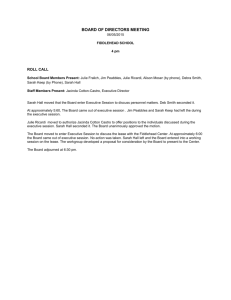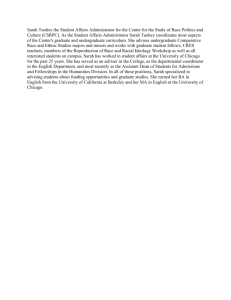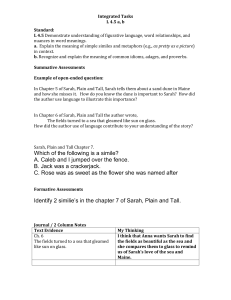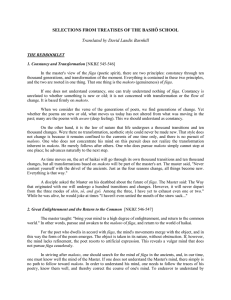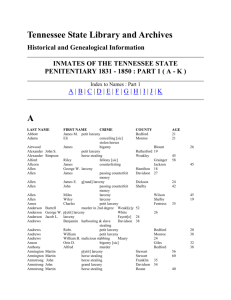Chapter 4 - Constitutional Authority to Regulate Business
advertisement
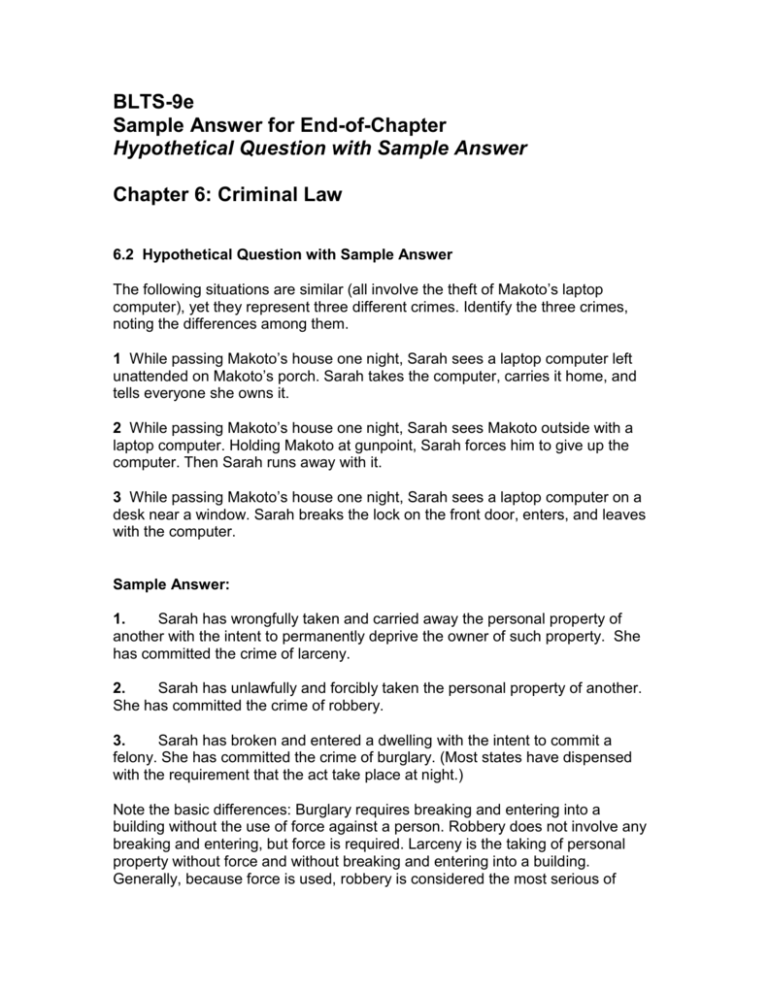
BLTS-9e Sample Answer for End-of-Chapter Hypothetical Question with Sample Answer Chapter 6: Criminal Law 6.2 Hypothetical Question with Sample Answer The following situations are similar (all involve the theft of Makoto’s laptop computer), yet they represent three different crimes. Identify the three crimes, noting the differences among them. 1 While passing Makoto’s house one night, Sarah sees a laptop computer left unattended on Makoto’s porch. Sarah takes the computer, carries it home, and tells everyone she owns it. 2 While passing Makoto’s house one night, Sarah sees Makoto outside with a laptop computer. Holding Makoto at gunpoint, Sarah forces him to give up the computer. Then Sarah runs away with it. 3 While passing Makoto’s house one night, Sarah sees a laptop computer on a desk near a window. Sarah breaks the lock on the front door, enters, and leaves with the computer. Sample Answer: 1. Sarah has wrongfully taken and carried away the personal property of another with the intent to permanently deprive the owner of such property. She has committed the crime of larceny. 2. Sarah has unlawfully and forcibly taken the personal property of another. She has committed the crime of robbery. 3. Sarah has broken and entered a dwelling with the intent to commit a felony. She has committed the crime of burglary. (Most states have dispensed with the requirement that the act take place at night.) Note the basic differences: Burglary requires breaking and entering into a building without the use of force against a person. Robbery does not involve any breaking and entering, but force is required. Larceny is the taking of personal property without force and without breaking and entering into a building. Generally, because force is used, robbery is considered the most serious of these crimes and carries the most severe penalties. Larceny involves no force or threat to human life; therefore, it carries the least severe penalty of the three. Burglary, because it involves breaking and entering, frequently where people live, carries a lesser penalty than robbery but a greater penalty than larceny.


